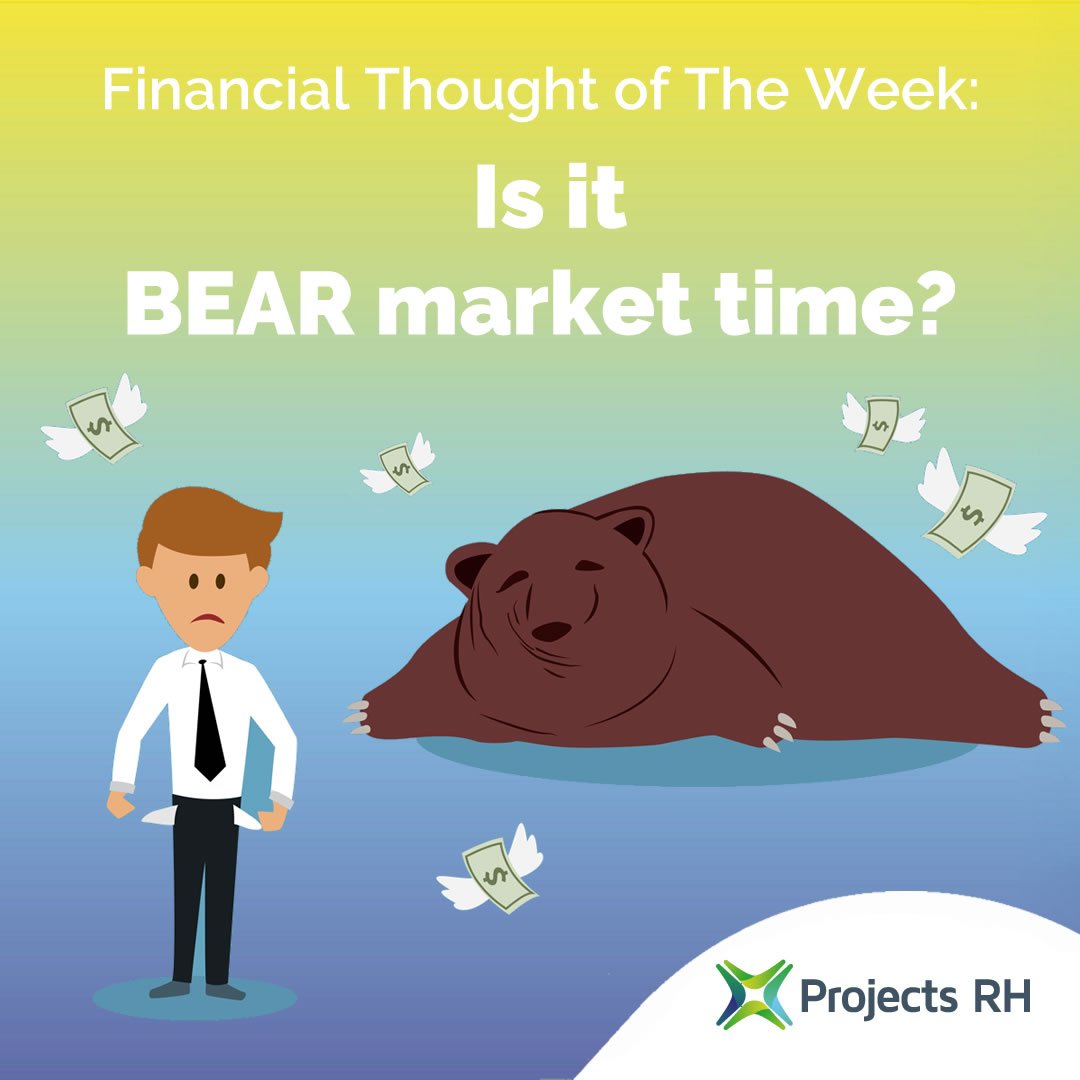Is it Bear market time?
Following each election, the new treasurer finance minister says things are much worse than we expected. This is generally shorthand for we won’t be able to deliver all promises. Globally, countries are worried that bear market time is near and their commitment to spending cannot continue. As interest rates rise the cost of serving existing debt increases as a percentage of the budget, and importantly, most governments have committed to not raising taxes.
In 2021-21 we saw governments around the world judiciously spend money to prevent their respective economies going into a Covid-based malaise. This is something that could be done short-term but clearly can’t continue.
The rise of a bear economy?
Despite the talk of rapid investment in infrastructure and, particularly in renewable energy, we are seeing the signs of the rise of a bear economy. Signs are:
- rising interest rates
- falling house prices
- business investment based on fundamentals
- Break up of conglomerates
- increased regulation
- organizations in growth sectors i.e., building and construction “rightsizing”
- offices moving to the suburbs and downsizing
- warehouse space in key locations globally becoming available as companies reduce their stocks levels.
- supply chains in tatters and very slow
- an economic mood that governments cannot continue to run deficits.
- mandated investments in the “Greening” of the economy which will not add to productivity or business profitability
- rising commodity prices
- political instability within nations and between countries
- increased expenditure on international aid and military
- reduction in real wages
- special Taxes i.e., UK’s levy on oil tax profits
Uncertainty in the global economy
What we thought will be a short sharp war in the Ukraine has every likelihood to become a longer and protracted engagement with many countries making contributions to the Ukrainian effort – falling short of committing troops. Likewise, there is an uneasy peace in Asia and the Pacific as parties seek to understand the aspirations of China.
Leading up to Covid and, amazingly, during Covid global stock markets and commodity prices reached record levels. Predominantly during Covid, global real estate prices rose significantly.
In addition to the economic signals, we are seeing dissatisfaction with the performance of major political parties globally. In Australia we have seen the emergence of independents; this is only one signal reflecting the fragility of business confidence. Unhappiness has been seen in Sri Lanka and Hong Kong plus globally we have had the anti-VAX movement demonstrate significant political muscle with economic consequence across USA, Canada, Australia, and Europe. What this says is there is a general unhappiness with the political classes and that the citizens are seeking something more. This something more of itself may be unclear even to the protestors.
The Greening of many economies, probably with the exception of the USA, is placing further stress and cost pressure on most economies. Generally, the price of energy in real terms is rising and the demand for investment in renewable energy means that this new capital and debt must be serviced. This consequently again are pushing up prices.
The increase in real estate value is also seeing the cost of rentals globally rising and the availability of affordable housing declining. Even for those who can afford housing this adds significant stress if wages have not risen anything like the cost of living.
The promise of future interest rate hikes in the United States and the decline in the price of tradable assets is adding to the uncertainty in the global economy, and raising expectations of a bear market time to come.
What we are not seeing is clear leadership on balancing national budgets and managing national economies. We can expect the consumers will increase their savings and therefore reduce consumption further reducing government income from taxes such as VAT.
Bear or bull market?
Whilst many see the glass as half-empty -looking bear market time in the face, others are seeing it half-full. This period of uncertainty gives the bulls the opportunity to restructure their businesses and implement significant change and benefit from the new economic order. Clearly businesses need to invest and adopt new technologies and prepare to enter new markets. Most travel restrictions that prevented global business have gone. There is a restructuring of the economic order as China focuses on its own domestic economy rather than export – sort of like America’s isolationism prior to WWII.
Are the Bears going to will us into a global recession?
The Bears have not won, and the bulls have been released from the pens so bear market time might be avoided. These are days of huge change in technology markets, energy, and international trade. The braver will be able to address these challenges and realize he who hesitates is lost. Our new world will need to work with Internet 3.0 and the Metaverse plus embrace the changes which will come from BlockChain and smart contracts.
The jury is out on how the currency of the Internet will work but the team at Projects RH will all soon be using a CBDC (central bank digital coin) with NFT (non-fungible tokens) being focused on the real estate and the art market.
For the clients of Projects RH, we suggest it is time to look at your cash flows and be ready for the uncertainty of a possible bear market time– of course this may provide the opportunity for growth and potentially acquisitions. We are seeing calls requesting our project management skills as companies plan and execute bold moves and many of these are international in their activities. If you believe we can assist your company to deliver significant change, please call us.
Until next time!
By Paul Raftery – CEO, Projects RH, based in Sydney. June 2022









